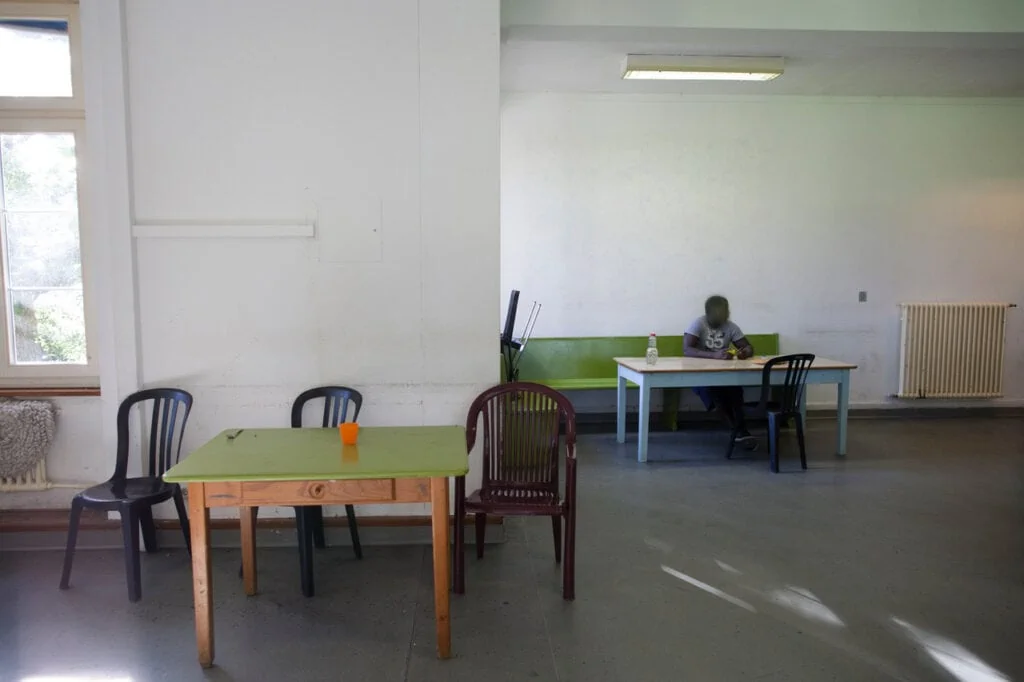Media release - Rejected asylum seekers in Switzerland usually end up in the emergency aid system. Here, the conditions are almost everywhere inhumane and harmful to health, criticize about 450 professionals from medicine, psychotherapy and psychology. In an open letter to the authorities and politicians, as well as to offices and enforcement organizations, they demand humane treatment of asylum seekers with negative decisions. Their request is supported by three Swiss non-profit organizations that work for the dignity and well-being of people with a refugee background and against racism and discrimination.
"The situation of people in the emergency aid system is alarming," says Urs Ruckstuhl, specialist psychologist for psychotherapy FSP with a joint practice in Zurich. "Many are desperate and suffer from mental and physical symptoms. Children are particularly at risk. The emergency aid system makes them ill."
Urs Ruckstuhl is co-author of a Technical report on the mental health consequences for rejected asylum seekers in the emergency aid system and one of around 450 medical, psychotherapeutic and psychological specialists who have completed a Open letter to the authorities and politicians as well as to the responsible offices and enforcement organizations. In it, they criticize the inhumane and unhealthy practice of the emergency aid system and make 7 demands for the necessary steps to abolish this problematic system.
"Degrading and sickening practice"
"Helpful treatment suggestions do not come to fruition in emergency aid, and psychotherapy, which is often urgently indicated, is usually not feasible," criticizes Urs Ruckstuhl the emergency aid system. "This encourages the hasty, one-sided and sometimes even abusive use of psychotropic drugs. The need is numbed." "The current practice of the emergency aid system must stop," demands the health expert: "It is degrading, demoralizing and sickening."
Children in the emergency aid system "particularly at risk"
Studies have found very high rates of physical and mental illness among refugees. According to a study published in Technical report According to a study cited by Urs Ruckstuhl and six other authors, around two thirds of rejected asylum seekers in Switzerland suffer from post-traumatic stress disorder. 84-92 percent have depression, a third of those surveyed have suicidal thoughts and almost 80 percent have severe physical complaints.
The system can be particularly damaging to the health of children and young people in emergency aid. Many are traumatized by war situations, abrupt relationship breakdowns, hunger, their parents' fear of death or the feeling of powerlessness and hopelessness.
The emergency aid system: too much to die for, too little to live for
Asylum seekers whose application is rejected have received emergency assistance since 2008. The emergency aid system was introduced in Switzerland to encourage asylum seekers with a negative decision to leave the country. Until then, emergency assistance is intended to ensure that they receive what is absolutely necessary to survive until they leave Switzerland again. Depending on the canton in which the rejected asylum seekers are located, emergency aid amounts to CHF 7 to 9 per day. They receive a place to sleep, health insurance and benefits in kind such as a toothbrush or slippers.
Asylum seekers in the emergency aid system live in extreme poverty and sometimes in inhumane accommodation - in underground bunkers, in multi-bed rooms with no privacy. They are not allowed to work, live in social isolation and access to medical services is severely restricted. This exacerbates the psychological and physical complaints of the refugees, who are already vulnerable due to their refugee background and suffer from anxiety or headaches, for example, or become aggressive or suicidal.
Just the week before last, the National Commission for the Prevention of Torture criticized the living conditions for rejected asylum seekers in return centers in the canton of Bern. It also expressed concern about the situation of children and young people.
The emergency aid system only works to a limited extent. There are people who have been living in the emergency aid system for five to ten, sometimes even 15 years, including many children. According to figures from the State Secretariat for Migration (SEM), 1,061 children were living in the emergency aid system in 2020. 380 of these minors had been in the system for over a year at the end of 2020.
Panel event in Zurich
The National Coalition Building Institute NCBI Switzerlandthat Solinetz Zurich and terre des hommes schweiz support the concerns of medical, psychotherapy and psychology professionals. All three organizations stand up for the dignity and health of people with a refugee background and against discrimination and racism.
On 21 March 2022, the three NPOs are organizing a public event in Zurich. Panel event on the problems of the emergency aid system.
Links to Content in German
Open letter: https://www.ncbi.ch/wp-content/uploads/Offener-Brief-humane-Behandlung-abg-Asy-Feb22.pdf
Technical report: https://www.ncbi.ch/wp-content/uploads/Bericht_Nothilfesystem_Print_ganz_weiss_einzelseiten2.pdf
Panel event: https://solinetz-zh.ch/-veranstaltungen/
Photo zVg Ursula Markus


